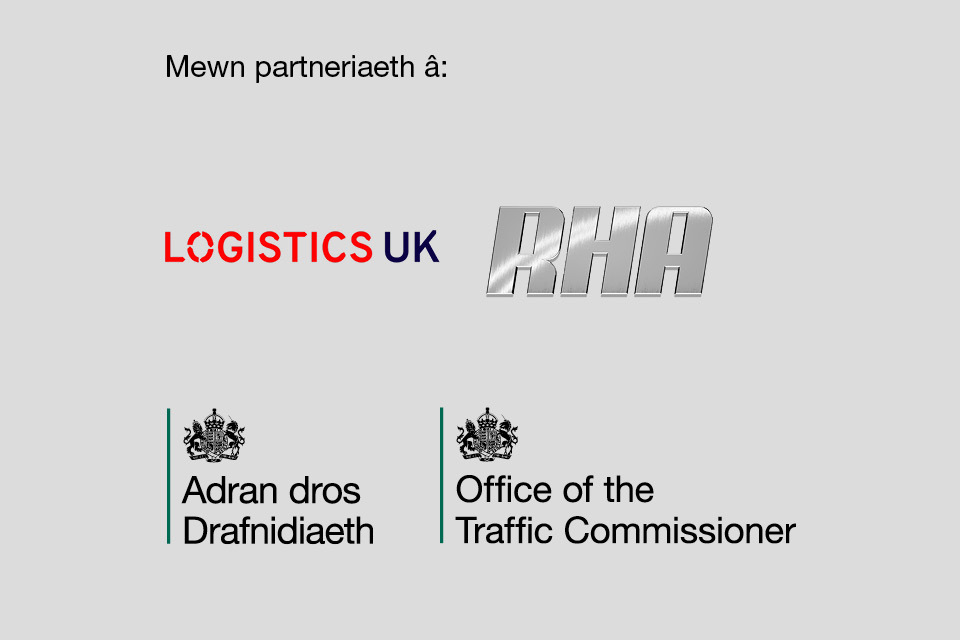Guidance for drivers: Large Goods Vehicles (vehicles over 3,500kg)
Updated 15 September 2025

This guidance will help you understand and comply with a few important rules and regulations around driver conduct and licensing in the haulage industry. It provides links to sources of more detailed information.
As a lorry driver, you should follow employer and government guidance to ensure the safety of yourself, your passengers, other road users and pedestrians.
1. Driver conduct
Driver conduct refers to vocational drivers’ behaviour and actions.
You should be aware of the role of the Traffic Commissioners. Their responsibilities include:
- considering the conduct of LGV licence holders and licence applicants to hold the entitlement
- suspending or revoking vocational drivers’ licences where appropriate
As a LGV driver, your conduct should be appropriate both at work and at other times.
Drink driving, drug driving speeding and hand-held mobile phone use pose particular risks to road safety. Traffic Commissioners can suspend or revoke a driver’s entitlement, and also disqualify, if they have been reported for these offences. You should tell your employer immediately if you are found guilty of any new motoring offence. Operators have a duty to report all motoring offences committed in any vehicle to the Traffic Commissioner.
Remember: just one offence and you could lose your entitlement to drive a lorry.
Read more detailed information on how Traffic Commissioners deal with vocational drivers.
As a lorry driver, you should follow employer and government guidance to ensure the safety of yourself, your passengers, other road users and pedestrians.
2. Driver CPC card
You must always carry your Driver Qualification Card (for the Driver Certificate of Professional Competence) when driving a lorry.
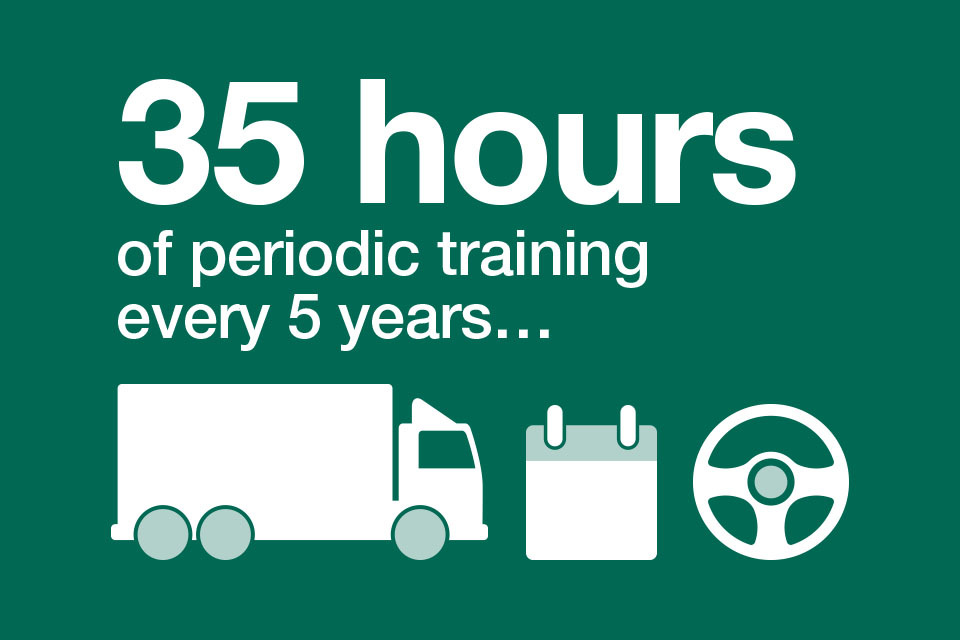
35 hours of periodic training every 5 years
You must complete 35 hours of periodic training every 5 years towards your Driver Certificate of Professional Competence to drive a lorry. Further information about this is available online.
You must carry your driver qualification card if you’ve been issued with one.
3. Driver tachograph card
You must also carry your digital driver card if you’ve been issued with one, even if you’re driving a vehicle with an analogue tachograph.
If your work is covered by EU Drivers’ Hours regulations and your vehicle is equipped with a digital tachograph, you have to use a driver card by law. If a vehicle fitted with a digital tachograph is being used on work covered by British Domestic Regulations, it must be set to ‘out of scope’ unless it is being used as an alternative to keeping records in a drivers log book.
Find out more about how many hours you can drive and the breaks that you need to take.
4. Driver licensing and medical conditions
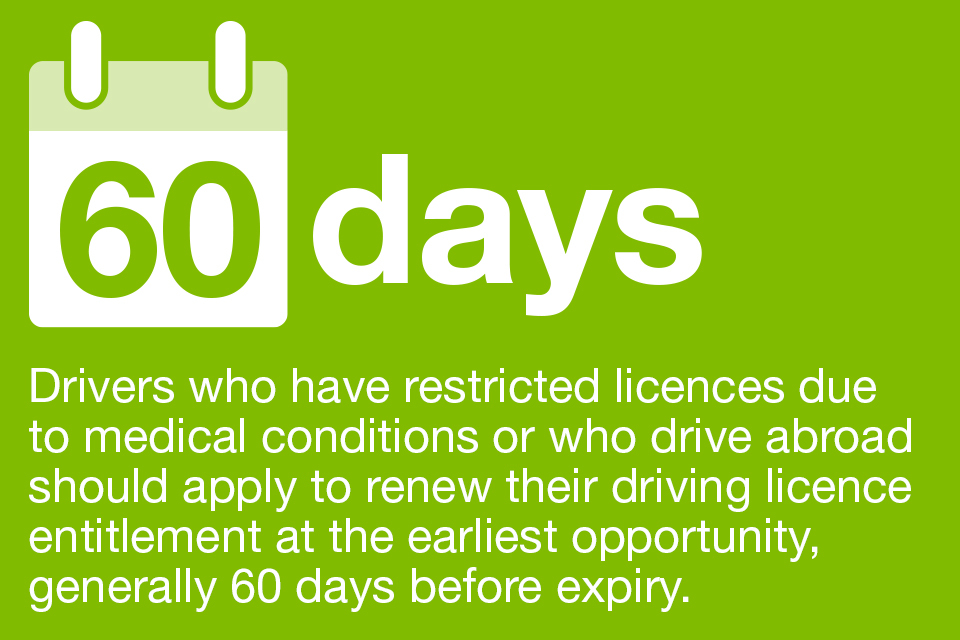
If you have a restricted licence due to medical conditions or you drive abroad, you should apply to renew your driving licence entitlement as soon as possible, generally 60 days before it expires. This will ensure that DVLA has enough time to investigate any medical conditions.
You should be aware that when you renew your vocational entitlement on your licence, the entitlement is valid from the date it is issued by DVLA. This might not correspond with the expiry date of the previous entitlement.
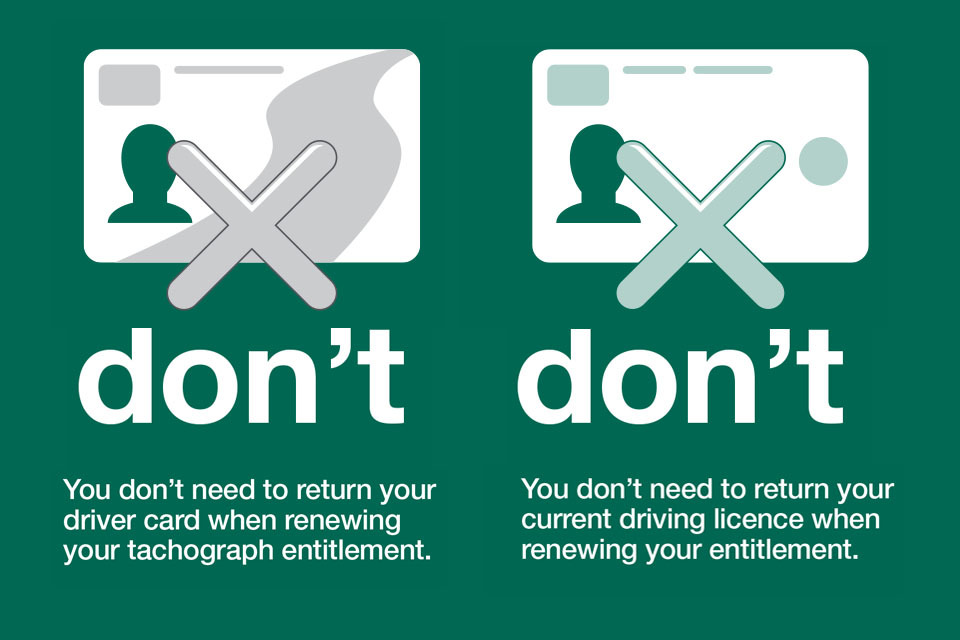
You do not need to return your driver card when renewing your tachograph entitlement. You do not need to return your current driving licence when renewing your entitlement.
It is your responsibility to know when your driving licence, driver card and CPC card expires.
You can check what vehicles you can drive, how many penalty points you have, and when your current licence expires at any time using DVLA’s View Driving Licence service. You will need your driving licence number and National Insurance number to use it. This is a free service.
You must tell DVLA and your employer about a notifiable medical condition. Most drivers who tell DVLA about a medical condition still keep their entitlement.
Those who do not tell DVLA are committing an offence and might be a danger to other road users and pedestrians.
Find out more about notifiable conditions or ask your healthcare professional whether an existing or new condition could affect your ability to drive safely.
If you’ve told DVLA about a medical condition, you should maintain close contact with your healthcare professional to ensure that any request for information from DVLA is handled promptly.
Application forms are available from your nearest Post Office® that deals with driving licence applications.
Find your nearest applicable Post Office.
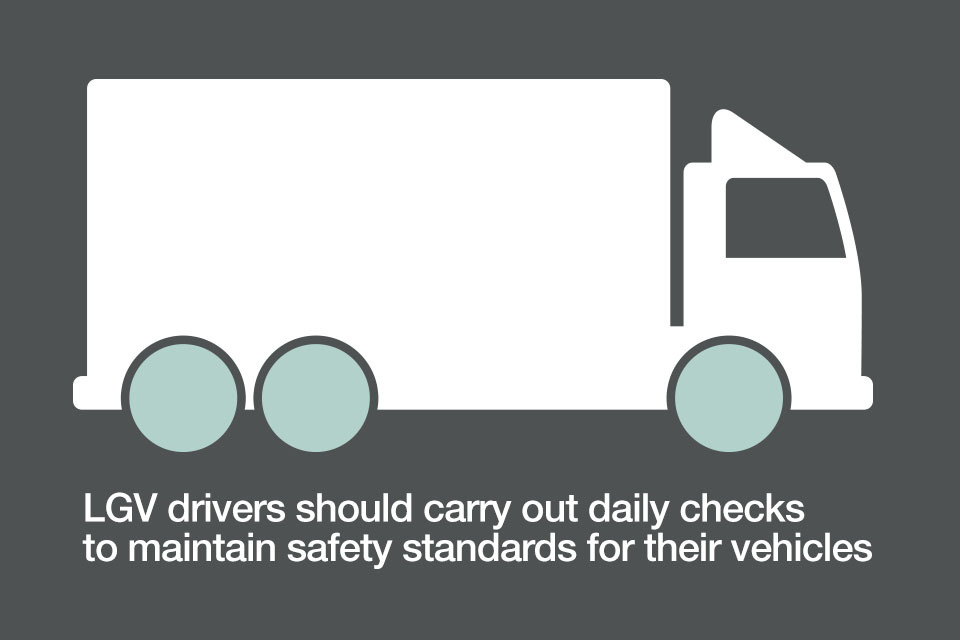
LGV drivers should carry out daily checks to maintain safety standards for their vehicles, called the ‘walkaround checks’.
Find out more about lorry, bus and coach driving.
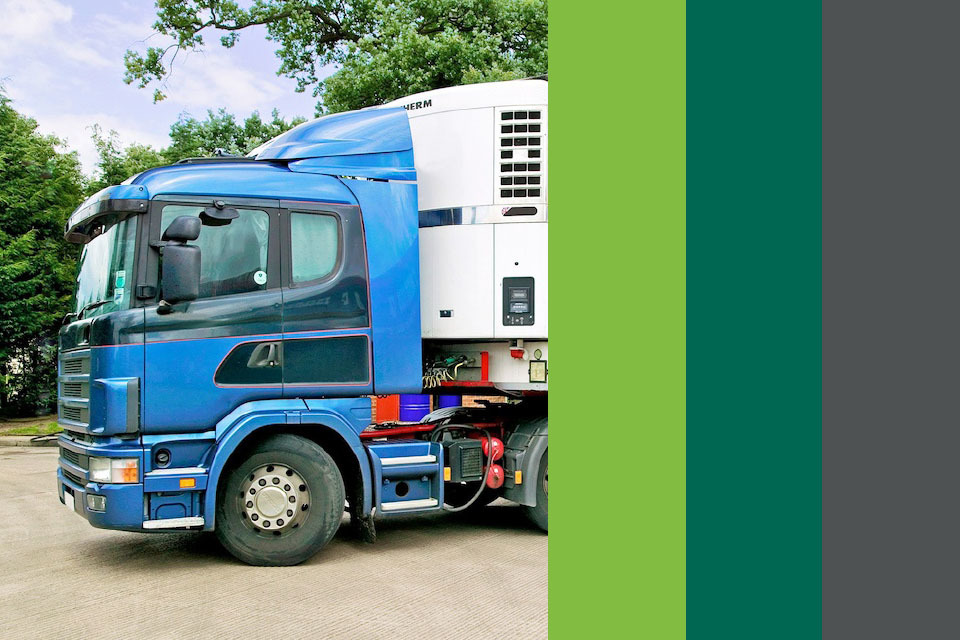
In partnership with:
- Logistics UK
- Road Haulage Association (RHA)
- Department for Transport (DfT)
- Office of the Traffic Commissioner
